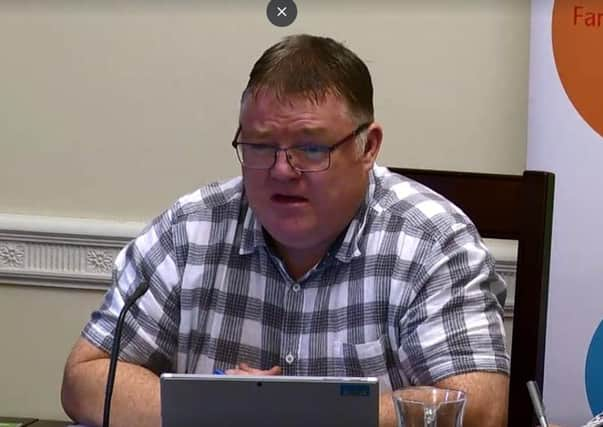Beef sector is in turmoil - NIMEA


Conall Donnelly of NIMEA estimates that NI processors depend on UK and EU foodservice customers for about a third of their sales. He says “the shutdown of these catering outlets in the UK and EU has created dangerous imbalances that are putting unbearable pressure on the supply chain”.
When the crisis reached UK shores in early March, worried consumers resorted to panic buying staples and retailers struggled to keep ahead of demand.
Advertisement
Advertisement
Donnelly says: “There was a surge in retail demand for cheaper cuts like mince and dice but even before the lockdown, the restaurant trade had slowed to a standstill, so while forequarter beef was selling well, processors were facing a collapse in demand for more expensive hind-quarter cuts.”


He added: “Large swathes of the market for products like fillet and sirloin steak have gone, leaving processors with the difficult choice between taking a distress price, freezing stock to an unknown value or mincing these normally high value cuts. With Easter effectively cancelled, and little prospect for family gatherings, demand for higher value roasting cuts has also fallen. Even where there is strong retail demand for mince, that is now offset to a large degree with the closure of fast-food chains who are major forequarter customers.
“With prices also falling for fifth quarter products the pricing model for beef processors comes under significant pressure. Hides for example are a major challenge, with the closure of tanneries in the main markets like China and Italy and reduced demand for leather in sectors like the car industry where sales have ground to a halt. These are the reasons why we have seen pressure on farmgate prices in recent weeks and we are acutely aware of how much pressure this puts on farmers who were already struggling with margins.”
The processors remain concerned about the short to medium-term prospects.
Advertisement
Advertisement
Donnelly added: “The industry is pressing retailers to heavily promote steak and get this product moving, but it is hard to be optimistic for the short term given the level of distortion and disruption facing the market. And a serious concern is that consumers will trade down to cheaper proteins as the economic crisis unfolds.
“The objective here must be that beef farmers and processors and survive this crisis. Ultimately the government may need to step in to support the industry in some shape or form to ensure we have a viable industry after this is over.”
Meanwhile, The Assembly’s Agriculture, Environment and Rural Affairs Committee (AERA) has called on the Minister to do all that he can to ensure that local beef farmers are prioritised by both supermarkets and processors.
The Committee’s concerns arise from recent reports that the ABP Food Group, which supplies meat products to Sainsbury’s and ASDA, had, at the beginning of the COVID-19 crisis, been distributing Polish beef in lieu of local beef produce to supplement its existing supply arrangements to supermarkets.
Advertisement
Advertisement
The Committee Chairperson, Declan McAleer MLA said: “While ABP has indicated that the supply of Polish beef was a temporary solution to meet the recent unprecedented needs of the consumer, the Committee cannot fathom why the local processing sector was not in a position to meet this demand.
“The COVID-19 crisis is placing our local beef farmers under tremendous financial pressure, with many already facing hardship and an uncertain future. It is crucial that the Minister recognises this, and does everything within his power to ensure that local farmers are prioritised and that the necessary systems are in place so that local processors can supply local produce.”
Mr McAleer continued: “The Committee is further concerned that for the farmer, prices are collapsing, despite what appears to be a very high and unprecedented demand for produce.
“We are calling on the Minister directly to outline the actions he is taking to provide assistance to our local beef farmers, and to ensure that as the most vital step in the food supply chain, they are fully supported to meet the demands of this crisis.”
Advertisement
Advertisement
Mr McAleer concluded: “The Committee would also take this opportunity to underline to wholesale distributors and to consumers, the importance of buying local produce and supporting local retailers. The beef our local farmers produce is of the finest quality, we must all do our part to support and help them in sustaining their livelihoods during these uncertain and unprecedented times.”